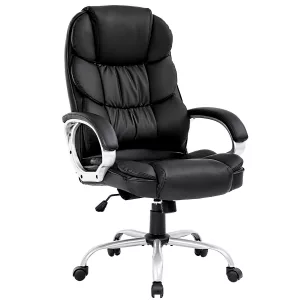Ever had one of those mornings? You know, you flop out of bed (maybe after snoozing your alarm too many times), and there it is – that stubborn, nagging ache in your hip. It’s not excruciating, just a dull little whisper. Maybe you brush it off, chalk it up to the way you twisted yesterday, or the fact that you’re not twenty anymore. But then, it’s still there, bugging you when you stand, making itself known as you walk, refusing to play nice and go away.
It’s weird, isn’t it? This feeling that starts off “harmless”… and yet, somehow, your mind starts asking, “What doctor should I see for hip pain?” Is this serious, or am I just out of shape? Should I wait it out, or get help? If you’ve found yourself in that jumble of questions, friend, you’re not alone. Let’s have a heart-to-heart about it – no medical jargon, no judgment, just real talk and real answers about when and where to turn for help when your hip screams for attention.
Listening to Your Hips—Why That Ache Might Matter
Let me tell you about my buddy Tom. He’s tough – the kind of guy who’ll finish mowing the lawn even if his shoes are two sizes too tight. This one summer, he gets this annoying twinge in his hip. No biggie, he thinks. A week goes by, then two, and suddenly it’s tough to get out of bed, let alone make those legendary Saturday pancakes. All because he didn’t listen to his body’s first warning shot.
See, hip pain isn’t just about getting older or sleeping funny. The hip joint is like the keystone in a bridge – mess with it, and everything else feels off. Sometimes, it’s just tired muscles. Other times, it can mean something’s wrong: joint inflammation, a pinched nerve, even something serious like arthritis or a hip fracture. Not to send you spiraling into worry – but honestly, your hip is too important to risk guessing games.
Common Causes of Hip Pain (And How to Spot the Troublemakers)
Okay, so what even causes hip pain? Sometimes it’s obvious, like a twisted ankle making you walk funny. Other times… it sneaks up out of nowhere. Here’s what’s usually at play:
- Overuse or sports injuries: You pushed a little too hard at the gym, or maybe twisted the wrong way gardening. It happens!
- Arthritis: The classic culprit, especially with age – think dull, constant ache and stiffness.
- Bursitis: That burning, shooting pain on the outside of your hip after you sit for too long? That’s classic bursitis for you.
- Pinched nerves or spinal issues: Sometimes, it’s not your hip – it’s your lower back masquerading as hip pain. Tricky, right?
- Referred pain: Oddly enough, issues with your knee, back, or even pelvis can send pain signals to your hip.
Here’s the thing: Not all hip pain is created equal. We all tweak something now and then, but persistent pain? That’s a red flag whispering, “Maybe don’t tough this one out on your own.”
Is It Just a Twinge or Something More? Spotting the Serious Stuff
Let’s get real for a minute: Sometimes, minor aches really are just that. But how do you know when it’s time to worry? Here’s the gut-check list – when to stop guessing and pick up the phone:
- The pain won’t quit after a few days of rest.
- Your hip looks swollen, bruised, or oddly shaped.
- You can’t put weight on the leg (limping really bad, or you have to use your hands to stand up).
- There’s a sudden, sharp pain—like, “ouch, I can’t move!”
- You’ve had a fall and now, yep, hip pain central.
- The pain wakes you up at night or keeps getting worse, not better.
- You have fever, chills, or the area’s hot and red (signs of infection).
If any of those sound familiar, don’t tough it out. See a doctor, pronto.
Hip Pain or… Back Pain in Disguise?
Hip pain doesn’t always play fair. Here’s a sneaky fact: sometimes, pain you swear is “hip pain” actually begins in your lower back. The nerves in your spine (sciatic nerve, anyone?) love to travel – from your back, down your butt, and right through the hip.
That’s where spine doctors are called into action. The big terms? Orthopedic spine surgeons or neurosurgeons. If you’ve got shooting pain, numbness, pins and needles, or your leg just feels weak, it could be a spinal issue—not your actual hip joint. Confusing, I know. Doctors help sort that out with a good exam (and sometimes an MRI).
The “What Doctor Should I See for Hip Pain?” Guide
Let’s boil it down—who should you see first, and when? Don’t worry, you’re not alone in finding this part overwhelming. Here’s how I’d walk a friend through it:
Start With Your Primary Care Doctor: The Launchpad
If it’s not an emergency (like you didn’t just fall off a ladder or get hit by a car), your primary care physician is your first stop. They know your medical history and can sort out if it’s a muscle tweak, an early sign of arthritis, or something trickier.
Here’s why they rock: They’ll ask you questions (how long? Does it hurt more at night? Any limp?), check your range of motion, and maybe do some quick, harmless tests. If things seem complicated, they’ll get you to the right specialist fast.
Orthopedic Specialist: The Joint, Bone, and Muscle Expert
If your doc suspects something more involved (like torn cartilage, chronic arthritis, past injuries), you might get referred to an orthopedic specialist. These are the folks who stare at X-rays for fun and genuinely want you back on your feet.
Tip: A good ortho won’t rush to surgery. They’ll walk you through physical therapy, non-surgical treatments, and step up only if you need more serious fixes.
Spine Doctors or Neurosurgeons: When Your Back’s Got Beef
Sometimes the hip isn’t guilty – your lower back is the troublemaker. This is where spine doctors are called in: orthopedic spine docs and neurosurgeons.
And yes, there’s a difference. In the classic debate—spine surgeon vs neurosurgeon—both work with the spine, but orthopedic surgeons tend to focus on bones, joints, and discs, whereas neurosurgeons handle nerves and the brain/spinal cord. Sometimes, they even tag-team tricky cases! So if your pain zings down your leg or you notice numbness, that specialist referral matters.
Still unsure? Your doc will help figure out who’s the best fit.
Other Experts: Physical Therapists, Rheumatologists, and Beyond
Still hurting, but tests say “nothing’s broken”? You might meet a physical therapist (to retrain muscles and strengthen weak spots), or a rheumatologist (for pain tied to autoimmune issues or stubborn inflammation). Chronic hip pain can be a puzzle, and it’s ok to need more than one detective on the case.
And here’s a tip: Hip pain linked to a chronic illness (like lupus, fibromyalgia, or old injuries) can need a team approach. Sometimes, the best answers come from a collection of experts working together – just like assembling the Avengers, but for your hip.
When Surgery Comes Into the Conversation
Not to sound dramatic, but the “S word” makes people nervous. Here’s what I’d tell my own family: most hip pain just doesn’t need surgery. But if you do, knowing what to expect helps kill that fear. You’ll have honest chats with your doctor about what surgery involves, what recovery is like, and—crucially—if it’s your only option. Trust your gut, ask every question you have, and don’t be afraid to get a second opinion.
| Specialist Type | When to See | Focus Areas |
|---|---|---|
| Primary Care Physician | First line for most new pain | Basic diagnosis, referrals, urgent checks |
| Orthopedic Specialist | Persistent pain, injury, arthritis | Bones, joints, ligaments |
| Spine Doctor/Neurosurgeon | Hip pain with back issues, nerve pain | Spine, nerves, complex cases |
| Physical Therapist | Chronic pain, recovery, rehab | Muscle strength, movement patterns |
| Rheumatologist | Suspected autoimmune or chronic inflammation | Arthritis, immune disorders |
Handy reference, right? Keep in mind, your story (your pain, your goals) matters as much as any test. Don’t ever let anyone rush you through the process.
Stories from the Real World: Because You’re Not Alone
Let me share a quick one from my own family: My aunt Jen always said her hips “just got grumpy” during wet weather. When it started waking her up at night, she still waited months before seeing anyone (hello stubborn gene). Turns out, she had early arthritis, but with a few lifestyle tweaks and some physical therapy, she’s back to hiking those steep hills on the weekends. Nothing heroic, but it changed her whole outlook.
Then there are the folks who wait too long, hoping things will “sort themselves out.” And hey, I get it. Doctor visits can feel intimidating. (Don’t even get me started on waiting rooms!) But almost every person I know who finally took the leap said the same thing: “I wish I’d done this sooner.”
Building Trust with Your Doctor (And Yourself)
Here’s straight talk: You deserve a partner in your healthcare, not just someone who scribbles a prescription and hurries out the door. When you’re picking a doctor, trust matters. Are they really listening? Do they explain things in a way that makes sense—not just rattling off medical buzzwords? Do they treat you like a number, or a human?
Don’t be afraid to ask questions. (Seriously. Write them on your phone and bring them to your appointment!) Good doctors want an engaged patient—they know that the better you understand what’s happening, the better you’ll do.
And if you feel like you’re being steered toward a treatment or even surgery you’re not comfortable with, stand your ground. Ask about conservative options. Sometimes, your path might involve pain management, exercise, or even something as simple as better shoes or a change in your workout routine. It’s not “being difficult”—it’s your right.
Navigating Next Steps—You’ve Got This
So, what doctor should you see for hip pain? To recap: start small (primary care), level up to an orthopedic or spine specialist if needed, and don’t get discouraged if it turns out to be a process. Each step forward—every question, every appointment, every answer—puts you closer to moving freely (and sleeping peacefully) again.
Remember, pain is your body’s way of waving a little flag. Don’t ignore it just because life is busy, or because you worry about “making a fuss.” If something feels off, you owe it to yourself to check in with someone you trust. Whether that’s a quick chat with your family doctor, an appointment with a physical therapist, or yes—even a consult with a spine surgeon or neurosurgeon if your journey leads there. Your well-being shouldn’t wait.
Conclusion: Your Next Steps Matter—And So Do You
Look, nobody wants to be on a first-name basis with the ortho clinic. But if your hip pain is getting in the way of living your life—walking your dog, playing with the grandkids, dancing around the kitchen at midnight—don’t wait and wonder. The right doctor (and the right advice) is out there, and getting help isn’t just smart—it’s brave.
So next time someone asks, “What doctor should I see for hip pain?” you’ll know exactly what to say—and more importantly, you’ll know you’re not alone on this road. Stay curious, stay kind to yourself, and, hey, if you’ve got a story or question, share it. We’re all in this together.

























Leave a Reply
You must be logged in to post a comment.